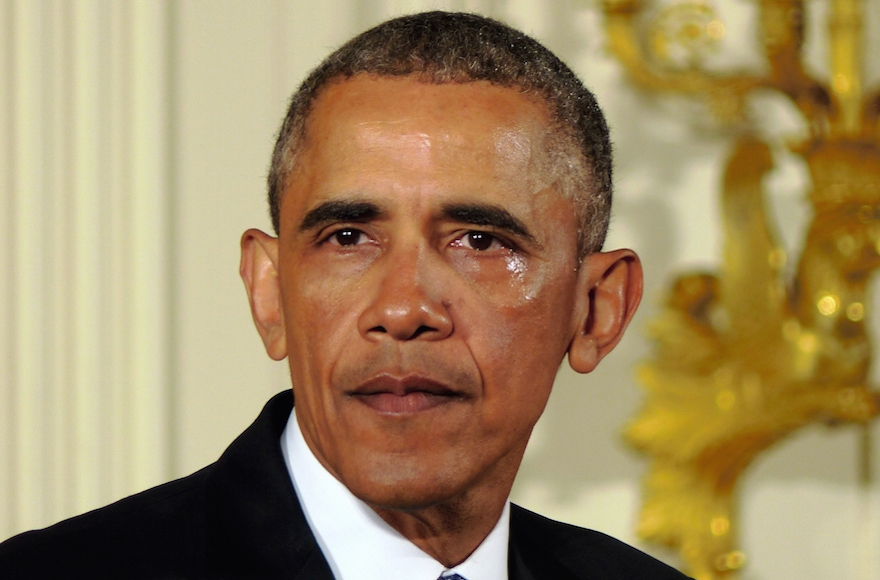WASHINGTON (JTA) — In the well-known story from the opening chapters of Genesis, we read the sparse narrative of an intimate relationship that turns violent.
Writing of the murder of Abel by his brother Cain, Russel Jacoby, author of “Bloodlust: On the Roots of Violence from Cain and Abel to the Present,” points out that victims are most at risk in their intimate relationships.
“Cain knew his brother – he talked with Abel – and [yet] slew him afterward,” Jacoby writes.
Statistics show not only that guns in the hands of those who commit domestic violence often lead to murder, but that violence is more often perpetrated by family members or intimate acquaintances than by strangers. Fifty-five percent of women murdered by intimate partners are killed with a gun. Yet current federal law fails to protect a growing population of victims and survivors of domestic violence, children as well as adults.
President Barack Obama’s recent effort through executive action to improve enforcement and clarify definitions regarding existing regulations on the sale of firearms is a welcome step toward changing the direction of the national discussion on gun violence. We support what the president has ordered: more effective enforcement of existing laws and a clarification of language that defines who is “engaged in the business” of gun sales.

Rabbi Marla Hornsten
But as welcome as these steps are, Congress still needs to address the dangerous and often lethal connection between domestic violence and guns. Federal law currently prohibits only some convicted abusers from buying or owning guns. Those convicted of misdemeanor domestic violence against a current or former dating partner, or misdemeanor stalking, can still legally buy and own guns. And the presence of a gun in an abusive relationship increases the homicide risk for a woman by 500 percent.
The Jewish textual tradition has long grappled with the roots of violence among intimates. But our tradition also understands that such intellectual wrestling is not enough – we also have an obligation to act.
That is why, as religious leaders, we are supporting two pending pieces of legislation – the Zero Tolerance for Domestic Abusers Act in the U.S. House of Representatives and the Protecting Domestic Violence and Stalking Victims Act in the U.S. Senate – that would prohibit the purchase or possession of guns by those convicted of any acts of domestic violence.

Rabbi Ari Lorge
Perhaps Americans, still recovering from the shock of one mass killing after another and bruised by polarizing political rhetoric, will yet reach areas of consensus and cooperation. People of good will can and should find it possible to agree on small but significant steps that can reduce both the level of violence and the risk associated with guns.
By closing loopholes in existing laws, where the scope and intent of the act is clear, we are not engaging in polemics or in politically motivated rhetoric. Rather we are seeking to strengthen existing laws designed to protect victims of domestic violence.
Given what is known about how guns can quickly escalate domestic disputes into murder, we urge Congress to pass these bills. If Americans may still learn any lesson from the tragic story of Cain and Abel, it is that we are, in fact, our brother’s — and sister’s and partner’s and parent’s and children’s — keeper.
(Rabbi Marla Hornsten of Temple Israel in West Bloomfield, Michigan, and Rabbi Ari Lorge, of Central Synagogue in New York, are co-chairs of Jewish Women International’s clergy task force on domestic abuse in the Jewish community.)
JTA has documented Jewish history in real-time for over a century. Keep our journalism strong by joining us in supporting independent, award-winning reporting.






